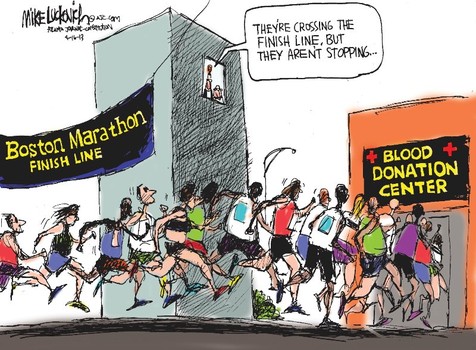In the wake of the tragic bombings at the Boston Marathon, many immediately turned to social media as their primary source of information. While traditional news outlets like CNN and NBC were quick to live-report the unfolding events, their coverage lacked a key component: the status of people’s friends and loved ones in Boston.
That’s the new role that social media has taken on in tragic events like Monday’s bombings. While websites like Twitter and Vine provided vital updates for news coverage, the ever-present problem of false information has prevented these networks from becoming trustworthy news sources. Instead, social media has adopted a different role in times like this: providing worried friends and family with the comforting update, “I’m OK.”
While thousands turned to social media to ensure friends and family were safe, thousands more turned to the platforms in an effort to help. BIGfish President David Gerzof Richard appeared on NECN this morning to discuss the power of social media, noting the many beneficial ways it was used in the wake of Monday’s events. Terms like “donate,” “help,” and “volunteer” surged to a 180-day peak on Twitter, and thousands of homes were shared in a Google Doc offering people a place to stay. Google even launched Person Finder, where people can look for or provide information about anyone tied to the incident.
“What was really great was word spread very quickly, so that people were able to slow and stop marathoners from running into what was essentially a war zone,” David Gerzof Richard told the Boston Herald.
We have discussed the role of social media in times of tragedy before. In October, those affected by Hurricane Sandy took full advantage of social media to spread news around the country, and 10 photos were uploaded every second on Instagram. But the reaction to natural disasters differs greatly from the reaction to acts of terror. The tragic events at the Boston Marathon provoked a different type of response on social media platforms, one that ultimately reaffirmed our nation’s generosity and humanity.
In tragedy, social media has become much more than a news source. It has become an outpouring of support from people worldwide and a virtual meeting place for those affected by the events. Today, sites like Facebook and Twitter play a vital role in bringing nationwide news to a personal level – spurring on kindness and support in the process.
–Jacqui Johnstone, Account Coordinator


